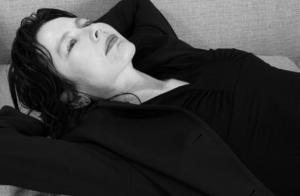 Whether by necessity, tradition or desire, it is a fact of our present situation that the arts have become intimately tied to education. With TEACHING IN THE MARGINS Full Stop seeks to further explore the implications of this reality, the ways the writing happening now is influenced and influences the teaching of reading and writing. Further, at a cultural and historical moment when funding for arts non-profits is increasingly being cut and University presidents are dethroned for not moving fast enough, the question is no longer should the way artists and educators operate change, but how?
Whether by necessity, tradition or desire, it is a fact of our present situation that the arts have become intimately tied to education. With TEACHING IN THE MARGINS Full Stop seeks to further explore the implications of this reality, the ways the writing happening now is influenced and influences the teaching of reading and writing. Further, at a cultural and historical moment when funding for arts non-profits is increasingly being cut and University presidents are dethroned for not moving fast enough, the question is no longer should the way artists and educators operate change, but how?
With this in mind, we sent our questionnaire to writers and curators, academics and educators, with an eye open to the interface between innovative artistic practice and progressive pedagogies, taking stock of the untapped potential of these unconventional ways of knowing, discovering how art pushing borders creates new spaces for teaching and learning at the margins.
Vanessa Place is a writer, a lawyer, and co-director of Les Figues Press. She is author of Dies: A Sentence (Les Figues, 2006), a 50,000-word, one-sentence novel in verse; La Medusa (FC2, 2008); Statement of Facts (Ubu editions, 2010), the first volume of her trilogy Tragodía which repurposes legal prosecution and defense documents verbatim; and The Guilt Project: Rape, Morality and Law (Other Press, 2010) an analysis of the prosecution of sexual offenders; among others. With Robert Fitterman, she co-wrote Notes on Conceptualisms (Ugly Duckling Presse, 2009), an exploration of contemporary conceptual writers and their work. Place is also a regular contributor to X-tra Art Quarterly, and has lectured and performed internationally.
Why did you become an educator? How has your perspective on teaching changed as your career has developed?
The only reason to become an educator is to become educated. The specifics are subject to alteration.
Who or what has been the biggest influence in your approach to teaching?
Silence.
Sir Ken Robinson makes the claim that the current American education system constructs the boundaries of learning in a way that makes true creativity impossible. In your experience, what is the relationship between arts and the education system or the academy? Symbiotic? Parasitic? Ambivalent? From your perspective, how does the American education system constrain the potential for innovative creative modes of thinking, creating, and writing?
Like the legal system, the American education system recognizes only precedent. Unlike the legal system, it often maintains a formal posture of disavowal of this lack of inherent authority. This doesn’t make true creativity impossible, just uncomfortable. The relation between the arts and education is cousinly: while kissing may be fine, copulation may cripple the child.
Is it possible to teach creativity within these constraints? Is it possible to teach creativity at all?
It is possible to teach creatively, perhaps. I am not sure if it is desirable to teach creativity: the students seem well armed with creation. The task is more to teach premeditation, the possibility of a skeleton within the pile of flesh.
What, for you, constitutes a piece of writing as experimental or innovative? What, if anything, does this sort of experimental practice have to contribute to the classroom?
Experimental, as in the laboratory, perhaps. It is necessary sometimes to blow up the laboratory. Only then are the confines of the classroom revealed.
What role do you see new technologies and non-academic spaces playing in transforming the way we learn in everyday life?
Rodin’s advice to Rilke was “Il faut toujours travailler.” Given our submersion in text and information, image and imagination, our most pressing and taxing task is to remain porous — to be always working as we are always seeing, always listening. Stupidly put: to be a gleaner is to be a learner.
Is literature (or art in general) inherently didactic? What do you hope to teach through your writing?
Lesser art teaches that trees are preferable to poems, Napoleons more magnificent than pastries. Good art is never didactic about anything but art.
I hope to teach.
This post may contain affiliate links.








